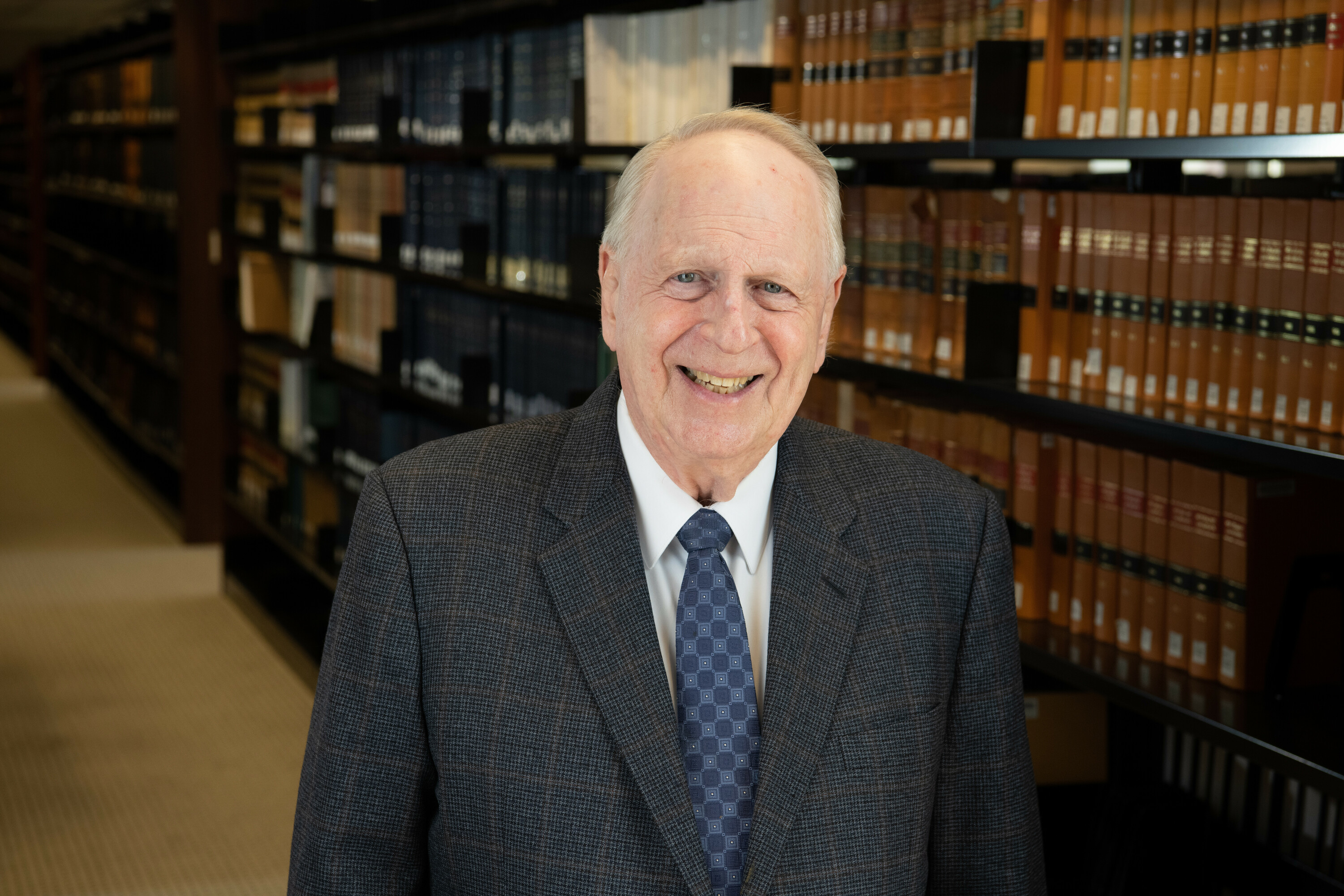When terrorists struck on Sept. 11, 2001, Professor Michael Greenberger was teaching his first semester of classes at the University of Maryland Francis King Carey School of Law. The following spring, he launched an organization that would transform emergency preparedness across the state and nation.
Greenberger retired June 30 as founding director of the University of Maryland Center for Health and Homeland Security (CHHS), concluding a 22-year tenure during which the center grew from a one-person operation into a nationally recognized institution with 35 professionals.
The center’s creation stemmed from the aftermath of 9/11, when then-University of Maryland, Baltimore President David J. Ramsay sought to establish an organization that would focus the university’s academic talents on combating terrorism.
“We started this center with basically no mandate except to do something about terrorism,” Greenberger said. “Now we’re working for governors, mayors, and private-sector clients nationwide on everything from cybersecurity to public health emergencies.”
“It was very forward-thinking of him,” said Heather Shaivitz '04, associate director and a Maryland Carey Law alumna. “Michael created something that didn’t exist anywhere else in the country. We’re affiliated with an academic institution but do a combination of academic work and real-world consulting. Most places that work in this field either do one or the other, but not really both. He’s really always been on the cutting edge.”
The journey to creating the center wasn’t a straight line. After 25 years in private practice and serving as director of the Division of Trading and Markets at the Commodity Futures Trading Commission and in the Clinton administration’s Justice Department as principal deputy associate attorney general, Greenberger landed at Maryland Carey Law through what he calls a stroke of luck — spotting a faculty opening in The Washington Post.
His expertise in emergency management, developed through his Justice Department work on counterterrorism exercises, caught the attention of Ramsay in the months after 9/11.
Under Greenberger’s leadership, the center has shaped emergency preparedness across Maryland and beyond. The center’s work proved particularly crucial during the COVID-19 pandemic, when staff worked exhaustive shifts helping jurisdictions implement emergency services and organize vaccine clinics.
The growth didn’t happen overnight. Early projects focused on basic emergency management such as developing continuity of operations plans for state agencies. As new threats emerged, the center adapted, adding expertise in cybersecurity, public health preparedness, and crisis management.
“One project led to another,” Greenberger said. “People would say, ‘Can you do this? Can you do that?’ These were paying projects from cities and states, and we kept growing to meet the need.”
Beyond consulting, the center has developed extensive academic programs. Staff members teach 13 courses across multiple programs at Maryland Carey Law and at the University of Maryland, College Park, training the next generation of emergency management professionals.
“The center that Michael Greenberger built has enriched Maryland Carey Law’s academic mission for over two decades,” said Renée Hutchins Laurent, dean, Maryland Carey Law. “From JD candidates to master’s students, Michael has built innovative programs that prepare our students to tackle tomorrow’s challenges in emergency management, cybersecurity, and public health preparedness. His legacy isn’t just in the courses taught, but in the generations of legal professionals and others who he has mentored and inspired throughout his 22 years at UMB.”
Shaivitz, who rose from law student to associate director under Greenberger’s mentorship, reflected on his leadership. “One of the great things about Michael is that he empowers staff to make suggestions and look for opportunities for the center,” she said. “He’s always been very supportive of us coming to him with ideas.”
When asked about his proudest accomplishment, Greenberger doesn’t hesitate: It’s the staff he assembled.
“Seeing staff advance through the ranks has been terrific,” he said. “Some started as young law students, interns, and now they’ve grown up through the organization to become leaders. There’s not a weak link in the bunch.”
Looking ahead, Greenberger will continue teaching at the law school, focusing on financial derivatives and cryptocurrency law. He’s particularly excited about developing one of the nation’s only law school courses on cryptocurrency. The transition also means more time with his four grandchildren.
Rather than offering advice to his successor, Greenberger expressed complete confidence in the center’s leadership.
“These folks are so well schooled and have done so many outstanding things over the years,” he said. “They’re completely ready to fly on their own.”
Editorial note: This story was first published in Catalyst Magazine, December 2024.

